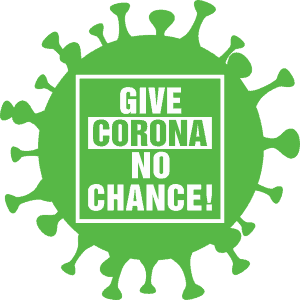Who would have thought that the world would come to a grinding halt over a virus?
Not a war with guns and tanks, not an atomic apocalypse. Not a power-hungry leader pushing a button in a fit of pique. Just a stupid little virus that moved from an animal to a human, likely in an open-air market, and brought the world to its knees. This tiny organism has brought out the best and the worst in our leaders and indeed, humankind.
It’s not the first time this has happened and likely will not be the last. We can look to literature to shed light on the political and behavioral rhetoric that invades us from every source.

The peonies have the ugliest shoots of all the early risers; their spring to summer metamorphosis is a miracle.
Sara Teasdale, a seemingly demure St. Louis poetess, reflected her study of Charles Darwin’s Origin of the Species in her anti-war poem, “There Will Come Soft Rains.”
There will come soft rains and the smell of the ground,
And swallows calling with their shimmering sound;
And frogs in the pools singing at night,
And wild-plum trees in tremulous white;
Robins will wear their feathery fire
Whistling their whims on a low fence-wire
And not one will know of the war, not one
Will care at last when it is done.
Not one would mind, neither bird nor tree,
If mankind perished utterly;
And Spring herself, when she woke at dawn,
Would scarcely know that we were gone.
“There Will Come Soft Rains” first appeared in Harper’s Monthly Magazine in July 1918—less than two months after the passage of the Sedition Act. Meant to strengthen the provisions of the already-repressive Espionage Act, the Sedition Act of May 16, 1918 was designed to quash American opposition to the war, outlawing “virtually all criticism of the war or the government” (Goldstein 108). Following its passage, anthologies and magazines continued to publish a small number of anti-war poems, but only if these poems were strategically “nonspecific” in their critique and refrained from offering any “substantive political alternative” to the war (Van Wienen 27). This climate of censorship casts a different light on the apparent obliqueness of Teasdale’s anti-war pastorals. Rather than a limitation, their rhetorical vagaries and historical imprecision might be precisely what enabled their circulation at the height of WWI. It is possible, in fact, that Teasdale’s cultivation of a demure, “poetess” persona might have, contradictorily, enabled her to publish anti-war poetry with impunity.” (Source)
Ray Bradbury took Sara’s quiet look at the survival of the species a giant step forward in his 1950 short story of the same name. In Bradbury’s apocalyptic vision, the world has been destroyed in an atomic disaster, yet “nature” continues through the electronic appliances running the house. Finally, a true natural event changes the course of the story. Bradbury lovers will recognize common themes in this penultimate story in The Martian Chronicles.
“There Will Come Soft Rains”
“In the living room the voice-clock sang, Tick-tock, seven o’clock, time to get up, time to get up, seven o ‘clock! as if it were afraid that nobody would. The morning house lay empty. The clock
ticked on, repeating and repeating its sounds into the emptiness. Seven-nine, breakfast time, seven-nine!In the kitchen the breakfast stove gave a hissing sigh and ejected from its warm interior eight pieces of perfectly browned toast, eight eggs sunny side up, sixteen slices of bacon, two coffees, and two cool glasses of milk.
“Today is August 4, 2026,” said a second voice from the kitchen ceiling, “in the city of Allendale, California.” It repeated the date three times for memory’s sake. “Today is Mr. Featherstone’s birthday. Today is the anniversary of Tilita’s marriage. Insurance is payable, as are the water, gas, and light bills.”
Somewhere in the walls, relays clicked, memory tapes glided under electric eyes. Eight-one, tick-tock, eight-one o’clock, off to school, off to work, run, run, eight-one! But no doors slammed, no carpets t
ook the soft tread of rubber heels. It was raining outside. The weather box on the front door sang quietly: “Rain, rain, go away; umbrellas, raincoats for today. ..” And the rain tapped on the empty house, echoing.
Outside, the garage chimed and lifted its door to reveal the waiting car. After a long wait the door
swung down again.” Click here for the rest of the story.
Read this analysis after you’ve read the short story — it’s quite good.
The Good News
The good news for today, in my humble opinion, is that we have not yet met the apocalyptic visions presented by either Teasdale in 1918 or Bradbury in 1950. We can depend on humankind and scientific advances to move us beyond our current crisis. As for me, I’m wearing my homemade mask and dreaming of a day when I can get on an airplane again and travel to another adventure.


I read Ray Bradbury long before I heard the poem referenced in the title; he often had a poetic prose the was very thought-provoking.
More recently, I’ve been listening to “History on Fire”, “Hardcore History” & “History Unplugged” podcasts to learn about the complexity of The Great War (1914-1918) & how it shaped the rest if the 20th Cent.
These podcasts complement & expand on Tuchman’s “Guns of August” & plumb miles below the shallow historical pools of Downton Abbey & Victoria.
The podcasters are all incredible storytellers knitting together myriad details to tell deeply rich narrative histories with insight & perspective.
…hah! All that from one line of poetry!
Whodathunkit!